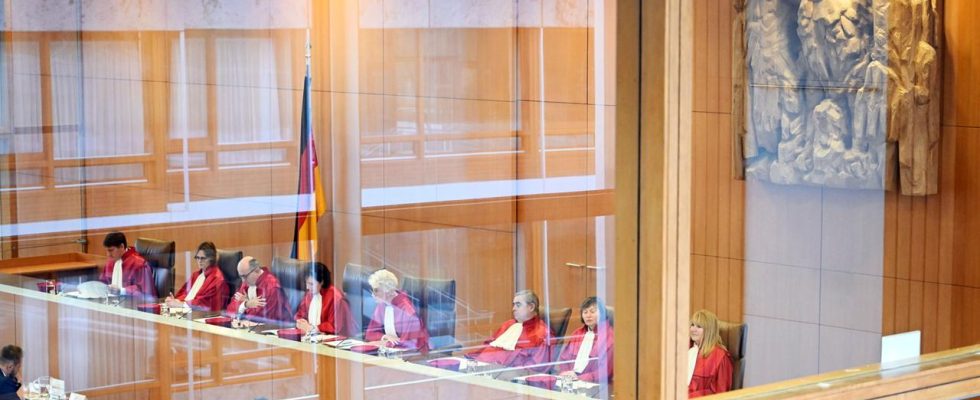comment
The Federal Constitutional Court is putting a stop to trickery to circumvent the debt brake – and reminds us of the principles of a transparent budget policy. It has done a real service to its citizens.
In terms of party politics, the answer is simple: the loser of the Karlsruhe decision is the traffic light coalition, which failed miserably with one of its first financial policy decisions. But we, the citizens, are the winners of the verdict.
Because none of us can be indifferent to how politicians deal with our money, with taxes and duties, which, by the way, have recently risen massively. There is no longer any money available to politicians in the long term – today’s debts are nothing more than tomorrow’s burdens.
In this respect, the Federal Constitutional Court has done us all a valuable service with its clarifications on the debt brake and budget policy.
Bypassing the debt brake
Firstly, because it puts a stop to trickery to circumvent the debt brake. And not just at the federal level, but also in the states. CDU-led governments such as those in Berlin and North Rhine-Westphalia should also quickly stop their special debt programs. Politicians have imposed the debt brake on themselves in order to protect future generations from excessive desire by the current generation.
At the same time, despite claims to the contrary, the debt brake in no way prevents politicians from spending money on climate protection or other important investments.
Unfortunately, politics – and not just in the traffic light coalition, by the way – often works like this: first the funds for social benefits and state staff are significantly increased, only to then be completely surprised to find that there is not enough money for investments. But it’s not the debt brake that’s to blame, it’s the politicians’ refusal to set priorities.
Principles of a transparent Budget policy
Secondly, the Federal Constitutional Court reminded us of the principles of transparent budget policy that have been violated for years, as the Federal Audit Office has long complained. More and more funds are being put into so-called special funds.
It’s not just that these shadow budgets have long since consisted more of debts than assets – this obscures the state’s true spending. And it’s not about a technical detail: it is part of the democratic principles that budgets are only drawn up by the respective governments for the period in which they are in power.
In this respect, the Karlsruhe decision reminds us of what should actually be self-evident. In the long run, politicians cannot spend more than they take in. And what it spends must be transparent. Thank you, Karlsruhe.
Editorial note
Comments generally reflect the opinion of the respective author and not that of the editorial team.

